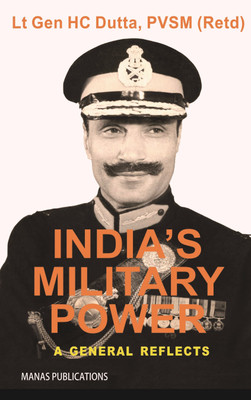India's Military Power(English, Hardcover, Dutta H C)
Quick Overview
Product Price Comparison
A fallout of India's independence in 1947 was the division of assets between India and Pakistan. The British Indian Army was split in two; two-thirds and one-thirds, to India and Pakistan, respectively. Muslim regiments going to Pakistan and non-Muslim regiments to India. There was total chaos, mirrored by the even bigger chaos of Partition.The Gorkha regiments were divided between England and India: four to UK, six to India. The regiments with India were to have Indian officers for the first time in history. These officers subsequently proved worthy of the legendary Gorkhas.In December 1947, Second Lieutenant Harish Dutta, fresh from the Indian Military Academy, joined his Battalion, 5th Battalion 8th Gorkha Rifles and was immediately thrown into peacekeeping duties in Calcutta, then in the grip of frenzied communal violence following Partition. The accounts of the momentous events that shook the sub-continent is starkly authentic and moving as only an eye-witness narrative can be. The author goes on to tell the story of the fabled Indian Army which, after centuries of exemplary service, morphed into the Army of Independent India, as a world class professional army. Presenting his arguments analytically with a strong historical flavour, he argues that the army has borne the brunt of security duty against external and internal threats but has not received the attention it deserved particularly in terms of modernization plans and improvement of the service conditions to attract young talent. He points out that without immediate measures to bring systemic changes, the Indian state would remain vulnerable in future wars.General Dutta highlights the challenges and problems facing the army and puts forward cogent solutions. He also looks at critical broader issues such as inter-services integration and the problem of civil-military relations with intensive analysis of past wars and the likely face of the future war.The author makes a strong plea for identifying the core interests and goals of the country. He also makes a strong plea for effective central planning and inter-services integration under a CDS, essential for prioritizing acquisition of weapons in contrast to the prevailing practices. The book expresses the author's anguish about the Indian Army not getting the recognition it deserves.This book will be of interest for all officers, defence experts and policy makers, concerned with India's defence preparedness, both in the short and the long term.


